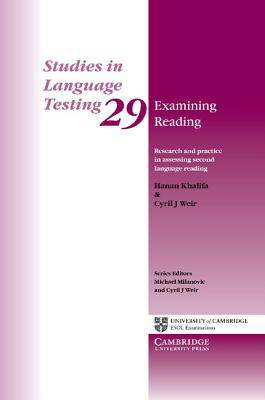
- Afhalen na 1 uur in een winkel met voorraad
- Gratis thuislevering in België vanaf € 30
- Ruim aanbod met 7 miljoen producten
- Afhalen na 1 uur in een winkel met voorraad
- Gratis thuislevering in België vanaf € 30
- Ruim aanbod met 7 miljoen producten
Zoeken
Examining Reading
Research and Practice in Assessing Second Language Reading
Hanan Khalifa, Cyril J Weir
€ 86,95
Omschrijving
This publication highlights the need for test developers to provide clear explanations of the ability constructs which underpin tests offered in the public domain. An explanation is increasingly required or if the validity of test score interpretation and use are to be supported both logically and with empirical evidence. The book demonstates the application of a comprehensive test validation framework which adopts a socio-cognitive perspective. The framework embraces six core components which reflect the practical nature and quality of an actual testing event. It examines Cambridge ESOL writing tasks from the following perspectives: Test Taker, Cognitive Validity, Context Validity, Scoring Validity, Criterion-related Validity and Consequential Validity. The authors show how an understanding and analysis of the framework and its components in relation to specific writing tests can assist test developers to operationalise their tests more effectively, especially in relation to criterial distinctions across test levels.
Specificaties
Betrokkenen
- Auteur(s):
- Uitgeverij:
Inhoud
- Aantal bladzijden:
- 358
- Taal:
- Engels
- Reeks:
- Reeksnummer:
- nr. 29
Eigenschappen
- Productcode (EAN):
- 9780521736718
- Verschijningsdatum:
- 27/08/2009
- Uitvoering:
- Paperback
- Formaat:
- Trade paperback (VS)
- Afmetingen:
- 171 mm x 214 mm
- Gewicht:
- 576 g

Alleen bij Standaard Boekhandel
Beoordelingen
We publiceren alleen reviews die voldoen aan de voorwaarden voor reviews. Bekijk onze voorwaarden voor reviews.








